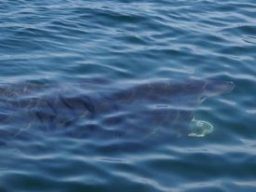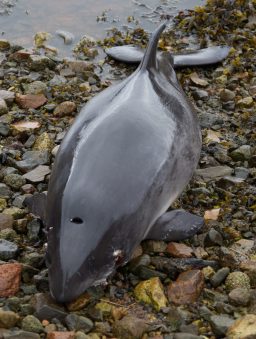FAQs
The Ferret are running
Scotland's Seas in Danger throughout 2024.
The Scottish government Claims......
Does Scotland
Really Have 37% protected?
The Scottish government want you to believe the Scotland has 37% of its sea area covered by Marine Protected Areas (MPAs). Let’s dive a little deeper into this claim!
There are various designations that fall under the MPA designation; they total 247. However, most allow for damaging bottom trawling and/or scallop dredging, two of the most damaging activities to seabed communities.
We suggest that the actual figure of ‘REAL’ protection is closer to 3.7%! That is protection that affords a real ecosystem approach and includes; - No-take-Zones, even No-Put-Zones.
From this point there are also other issues that muddy the water.
Firstly, the Minister stated during a video conference with us that, “Maybe we should call them (MPAs) ‘designated’. That really does take the “P” out of MPA!
We asked the Scottish government under FOI for a definition of the word/term, “protection”, they replied with six different terms, so when dealing with government and politicians, when they say the word, ‘protection’, we need to ask which definition to which they are referring to?
We call this type of protection; - “Paper-Parks”!
If MPAs Work; Why Do We Need; - HPMAs?
Highly Protected Marine Areas
If MPAs, did what they "say on the tin", i.e. 'PROTECT', there would be no need for the 'next level' of protection: HPMAs!
That said, Scotland does not have any HPMAs, as the Scottish government back-tracked and withdrew from the concept, despite it being part of the Bute House Agreement with the Scottish Greens.
The powerful lobbing, predominantly from the mobile fishing sector and the media frenzy that followed caused a retraction of protective measures.
The Scottish government and its quangos ignored pleas from local people in remote and rural areas that their voices were not being heard; people that wanted protection around coastal communities and islands.





Are Scottish Seas Special?
"Scotland’s marine and coastal species are critically endangered or in rapid decline"
“Scotland’s coasts and seas are among the most biologically productive in the world. They support an estimated 8,000 species of plants and animals – and up to 40,000 species if you include microscopic organisms. New species are still being discovered, particularly in deeper waters to the north and west.”
“In July 2014, Scottish Ministers adopted a list of 81 priority marine features (PMFs) – many of which are features characteristic of the Scottish marine environment.”
"The species most at risk include fish, birds and mammals such as cod, salmon, trout, harbour seal, gulls, shag and guillemot.
Declining fish numbers in Scottish waters – caused by overfishing and climate change – are impacting birds, dolphins, whales and others who rely on fish as a key food source, while pollution, energy infrastructure, and fishing gear also threaten marine life".
Are we losing the right.....
to free speech and peaceful protest?
A Highland MSP stated in the media that, the Scottish government/councils should not accept
“EXTREME” opinions.
The term “extreme” was never defined, which left the situation somewhat fluid and worrying, he continued with, - "extreme forms of environmentalism", could detract from genuine planning objections. We would suggest that OBJECTIONS are just that and ALL are valid within the planning process.
In recent years people have been arrested for protesting and the right for peaceful protest has been challenged. The most recent case before the courts is that of SLAPP’s.
A SLAPP is:-
Strategic Lawsuit Against Public Participation
Lawsuits in the UK (as elsewhere) can be expensive, very expensive! Defending against legal action can be prohibitive and a huge concern to many. Some multinational corporations use this method in order to prevent access, to installations such as salmon farms and oil platforms in an attempt to prevent evidence gathering and highlighting concerns, which could be used in public campaigns and/or to form evidence in a legal case.
“We cannot protect free speech without protecting the right to protest”.
Nik Williams, policy and campaigns officer at Index on Censorship and co-chair at
“Campaign groups claimed that the increasing number of legal actions by the government and corporate actors is an “attempt to silence” green campaigners”.
In 2022 new legislation was passed, in effect; - “a noisy protest” that causes harm to others may be shut down (England & Wales). The maximum prison sentence has been raised to ten years! There is also an extension to a ‘common-law’ offence of,
“intentionally or recklessly causing public nuisance”, which can also carry a ten-year incarceration.
The legislation in Scotland will change, more can be found on the Police Scotland website.
Readers might also be interested in the Amnesty Scotland site:

"Our promise"; - The Scottish government
Is the Scottish government ‘pushing’ marine protection down the road?
Oops! If this passes the 2026 election deadline,
Establishing new fisheries management measures will be dead-in-the-water!
The Scottish Government has been accused of “very serious political delays” over its
promises to better protect the marine environment.
Marine ‘Protection’ Update:
Current commitments have been pushed back to 2025.
"It has been almost ten years since the Scottish Government announced its network of MPAs as required by the Marine (Scotland) Act 2010.
Many MPAs are vulnerable to the impact of poorly-managed fishing such as scallop dredging because ministers have failed to deliver fisheries management.
Scallop dredging and bottom-trawling – the most environmentally harmful forms of fishing are restricted in less than five per cent of Scotland's seas".
Scallop dredging is an issue that Ferret has covered since 2015. In 2023, for example, scallop dredging had been found inside an Orkney MPA at Papa Westray.
Dredgers allegedly targeted the Firth of Lorn SAC, a special area of conservation in the Southern Hebrides protected for rocky reef habitats which support species that are “amongst the most diverse in both the UK and Europe”.
Our sister group was one of the NGOs which submitted a complaint to the European Commission.
Read more of the Ferret article here.
We need your consent to load the translations
We use a third-party service to translate the website content that may collect data about your activity. Please review the details and accept the service to view the translations.

